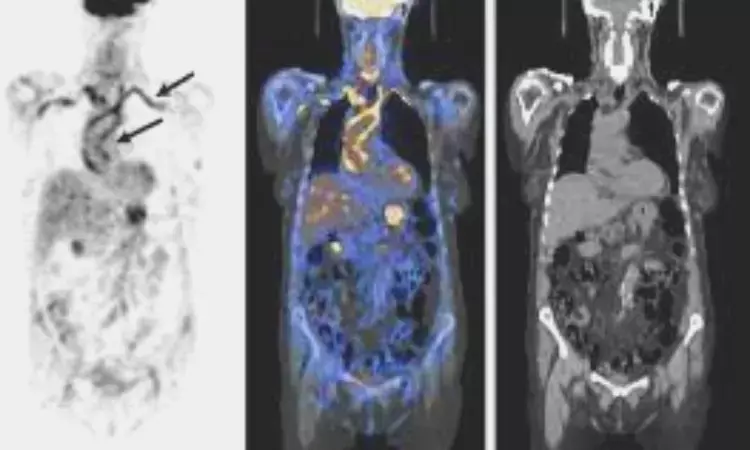- Home
- Medical news & Guidelines
- Anesthesiology
- Cardiology and CTVS
- Critical Care
- Dentistry
- Dermatology
- Diabetes and Endocrinology
- ENT
- Gastroenterology
- Medicine
- Nephrology
- Neurology
- Obstretics-Gynaecology
- Oncology
- Ophthalmology
- Orthopaedics
- Pediatrics-Neonatology
- Psychiatry
- Pulmonology
- Radiology
- Surgery
- Urology
- Laboratory Medicine
- Diet
- Nursing
- Paramedical
- Physiotherapy
- Health news
- Fact Check
- Bone Health Fact Check
- Brain Health Fact Check
- Cancer Related Fact Check
- Child Care Fact Check
- Dental and oral health fact check
- Diabetes and metabolic health fact check
- Diet and Nutrition Fact Check
- Eye and ENT Care Fact Check
- Fitness fact check
- Gut health fact check
- Heart health fact check
- Kidney health fact check
- Medical education fact check
- Men's health fact check
- Respiratory fact check
- Skin and hair care fact check
- Vaccine and Immunization fact check
- Women's health fact check
- AYUSH
- State News
- Andaman and Nicobar Islands
- Andhra Pradesh
- Arunachal Pradesh
- Assam
- Bihar
- Chandigarh
- Chattisgarh
- Dadra and Nagar Haveli
- Daman and Diu
- Delhi
- Goa
- Gujarat
- Haryana
- Himachal Pradesh
- Jammu & Kashmir
- Jharkhand
- Karnataka
- Kerala
- Ladakh
- Lakshadweep
- Madhya Pradesh
- Maharashtra
- Manipur
- Meghalaya
- Mizoram
- Nagaland
- Odisha
- Puducherry
- Punjab
- Rajasthan
- Sikkim
- Tamil Nadu
- Telangana
- Tripura
- Uttar Pradesh
- Uttrakhand
- West Bengal
- Medical Education
- Industry
PET/CT helpful in diagnosing fever or inflammation of unknown origin: Study

Graz, Austria: A recent study in the journal Scientific Reports has shown the utility of F-18 FDG PET/CT for diagnosing fever or inflammation of unknown origin (FUO/IUO) in more than half of cases if other diagnostic tools fail.
In fever or inflammation of unknown origin, determining the cause has been challenging despite today's diagnostic modalities. Considering this, Friedrich Weitzer, Medical University of Graz, Auenbruggerplatz, Graz, Austria, and colleagues aimed to evaluate the value of F-18 FDG PET/CT in an unselected patient collective in a retrospective nonrandomized single-center study.
The study enrolled 300 male and female patients with FUO/IUO. The researchers compared PET/CT findings with final clinical outcomes to determine the specificity, sensitivity, etiological distribution of final diagnoses, clinical significance, impact on treatment, the role of white-blood-cell count (WBC), and C-reactive protein (CRP).
Based on the study, the researchers found the following:
- In 54.0% PET/CT was the decisive exanimation for establishing the final diagnosis, in 13.3% the findings were equivocal and indecisive, in 3.3% PET/CT findings were false positive, while in 29.3% a normal F-18 FDG pattern was present.
- Statistical analysis showed a sensitivity of 80.2% and a specificity of 89.8% for the contribution of PET/CT to the final diagnosis.
- CRP levels and WBC were not associated with PET/CT outcomes.
- PET/CT let to new treatment in 24.0%, treatment change in 18.0%, no treatment change in 49.6%, and in 8.3% no data was available.
"F-18 FDG PET/CT is a useful method in the diagnosis of FUO. Our study clearly showed an overall high specificity and sensitivity compared to several meta-analyses," wrote the authors. "Therefore, the early use of F-18 FDG PET/CT should be considered if other diagnostic means fail."
"The optimum timing for the performing as well as the standardization of F-18 FDG PET/CT as a first-line work-up in FUO/IUO patients however is still debatable," they concluded.
Reference:
Weitzer, F., Nazerani Hooshmand, T., Pernthaler, B. et al. Diagnostic value of F-18 FDG PET/CT in fever or inflammation of unknown origin in a large single-center retrospective study. Sci Rep 12, 1883 (2022). https://doi.org/10.1038/s41598-022-05911-7
Dr Kamal Kant Kohli-MBBS, DTCD- a chest specialist with more than 30 years of practice and a flair for writing clinical articles, Dr Kamal Kant Kohli joined Medical Dialogues as a Chief Editor of Medical News. Besides writing articles, as an editor, he proofreads and verifies all the medical content published on Medical Dialogues including those coming from journals, studies,medical conferences,guidelines etc. Email: drkohli@medicaldialogues.in. Contact no. 011-43720751


